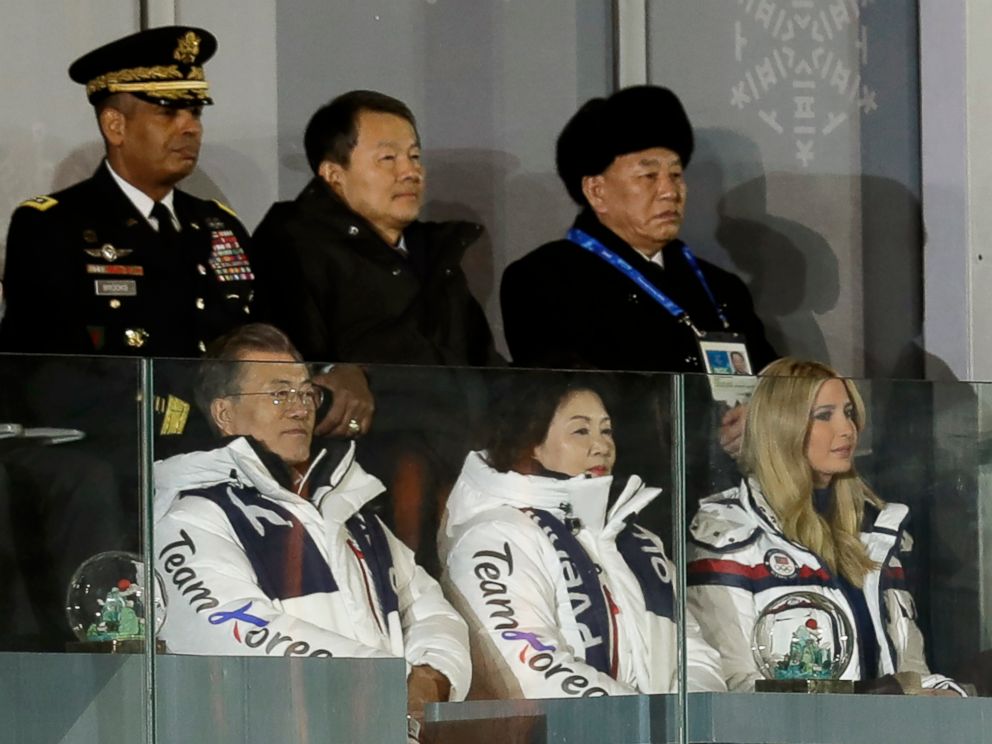Special to WorldTribune.com
 By Donald Kirk
By Donald Kirk
U.S. officials remain deeply skeptical of North Korea’s intentions while South Korea’s President Moon Jae-In seeks to build on the momentum toward negotiations in the aftermath of the Winter Olympics.
The White House is awaiting a firm signal directly from Pyongyang about the prospects for talks while wondering about the meaning of statements put out by the Blue House in which North Korea’s Kim Yong Chol is quoted indirectly as saying he’d be willing to talk to the Americans.
Fine, Americans are saying, so when are they going to tell us in their own words rather than in the words of a spokesman for Moon? Secretary of State Rex Tillerson has said it should be possible to sit down with the North Koreans and talk about anything they wish, but so far there has been no response from North Korea aside from the comments of Kim Yong-Chol, as relayed not by him directly but by Moon’s spokesman.

Even if North Korea does suddenly agree on talks with the U.S., as Moon has said are needed as soon as possible, there’s no guarantee they will get anywhere. In fact, there is every possibility they won’t.
The Americans are leaving no doubt that they will want to ask the North Koreans, what are you doing about giving up your nuclear program? They are fully prepared for a totally negative response, perhaps a flat refusal to answer the question, possibly even an abrupt end to the talks as the North Koreans leave the room.
Indeed, say the Americans, it’s possible that Kim Yong-Chol, vice chairman of the North’s ruling Workers’ Party, back in Pyongyang from his visit to Seoul, will forget about whatever assurances he gave to Moon about talking to the Americans. He may say nothing while the regime spews anti-American rhetoric while South Korea and the U.S. go ahead with annual military exercises after the Paralympic in March.
Thus, it’s not surprising that President Donald Trump said talks would be fine but only “under the right conditions.” He did not specify exactly what conditions would be “right,” but certainly he’s not interested in negotiations while North Korea continues to engage in insults, to deride him in editorials and, above all, to persist in threatening the U.S. with nuclear attack.
The Americans, though, are no longer saying that North Korea has to show definite signs of giving up its nuclear program before talks can begin. That’s not a pre-condition, in the view of Secretary of State Rex Tillerson, who has said he’d be glad to talk about anything they wish. That remark, however, does not mean that the Americans could not raise the nuclear issue at the negotiating table.
Before talks can begin, however, it would be helpful, in the American view, if Kim Jong-Un called a moratorium on missile tests, particularly tests of a long-range ballistic missile capable of carrying a warhead to American targets. If North Korea resumes missile tests in the aftermath of the Olympics and Paralympics, then obviously U.S.-North Korean negotiations will be difficult to arrange.
Trump’s position appears two-sided. He has said a number of times that he would be glad to talk to Kim Jong-Un or to authorize negotiations between U.S. and North Korean officials, but he maintains the “military option” of a preemptive strike against the North’s nuclear and missile facilities.
Trump appears, however, to have been constrained by the advice of Defense Secretary Jim Mattis, who has warned of a Second Korean War breaking out if the North retaliated by bombarding the Seoul and Incheon metropolitan region with artillery well hidden just above the demilitarized zone between the two Koreans.
On the other hand, a number of analysts question whether North Korea would want to respond by attacking the South even if the U.S. staged a strike. Kim Jong-Un said, while agreeing to join in the Winter Olympics, that he viewed the U.S., not South Korea, as the enemy. The inference is he would focus on American targets, including possibly U.S. bases in South Korea.
Disillusionment and disappointment are typical in the long-running confrontation between North and South Korea, and between the North and the U.S. Over the years there have been innumerable gestures toward rapprochement, none of which has worked out as planned. North Korea’s determination to build nuclear warheads has only increased since the era of the Sunshine policy proclaimed by Kim Dae-Jung when he was president from 1998 to 2003 and continued by his successor, Roh Moo-Hyun.
When Kim Dae-jung met Kim Jong-Il for the first inter-Korean summit in June 2000, North Korea’s nuclear program was not regarded as an imminent threat. They agreed to bring about much improved North-South relations as indicated by their emphasis on visits between members of divided families, but so far there have been only about 20 such reunions, each for several days, while North Korea plays political games, refusing regular visits.
Since North Korea’s first nuclear test in October 2006, inter-Korean relations have only worsened despite the second inter-Korean summit in October 2007 when President Roh Moo-Hyun followed in Kim Dae-Jung’s footsteps to Pyongyang to see Kim Jong-Il. Significantly, Moon Jae-In, as Roh’s chief of staff, helped arrange for the summit and accompanied him to Pyongyang.
Now the question is whether Moon as president will accept Kim Jong-Un’s invitation for a third inter-Korean summit and whether he can maintain the momentum for reconciliation. He will no doubt be talking to Trump on the phone, as they have done a number of times, while awaiting word from Pyongyang as to whether Kim Yong-Chol was serious about expressing his “intention” to talk to the Americans.
